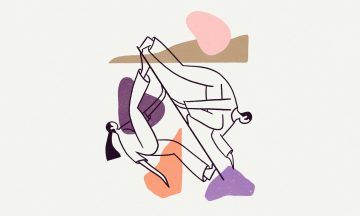Gaia Vince in The Guardian:
 Fathers are happier, less stressed and less tired than mothers, finds a study from the American Time Use Survey. Not unrelated, surely, is the regular report that mothers do more housework and childcare than fathers, even when both parents work full time. When the primary breadwinner is the mother versus the father, she also shoulders the mental load of family management, being three times more likely to handle and schedule their activities, appointments, holidays and gatherings, organise the family finances and take care of home maintenance, according to Slate, the US website. (Men, incidentally, are twice as likely as women to think household chores are divided equally.) In spite of their outsized contributions, full-time working mothers also feel more guilt than full-time working fathers about the negative impact on their children of working. One argument that is often used to explain the anxiety that working mothers experience is that it – and many other social ills – is the result of men and women not living “as nature intended”. This school of thought suggests that men are naturally the dominant ones, whereas women are naturally homemakers.
Fathers are happier, less stressed and less tired than mothers, finds a study from the American Time Use Survey. Not unrelated, surely, is the regular report that mothers do more housework and childcare than fathers, even when both parents work full time. When the primary breadwinner is the mother versus the father, she also shoulders the mental load of family management, being three times more likely to handle and schedule their activities, appointments, holidays and gatherings, organise the family finances and take care of home maintenance, according to Slate, the US website. (Men, incidentally, are twice as likely as women to think household chores are divided equally.) In spite of their outsized contributions, full-time working mothers also feel more guilt than full-time working fathers about the negative impact on their children of working. One argument that is often used to explain the anxiety that working mothers experience is that it – and many other social ills – is the result of men and women not living “as nature intended”. This school of thought suggests that men are naturally the dominant ones, whereas women are naturally homemakers.
But the patriarchy is not the “natural” human state. It is, though, very real, often a question of life or death. At least 126 million women and girls around the world are “missing” due to sex-selective abortions, infanticide or neglect, according to United Nations Population Fund figures. Women in some countries have so little power they are essentially infantilised, unable to travel, drive, even show their faces, without male permission. In Britain, with its equality legislation, two women are killed each week by a male partner, and the violence begins in girlhood: it was reported last month that one in 16 US girls was forced into their first experience of sex. The best-paid jobs are mainly held by men; the unpaid labour mainly falls to women. Globally, 82% of ministerial positions are held by men. Whole fields of expertise are predominantly male, such as physical sciences (and women garner less recognition for their contributions – they have received just 2.77% of the Nobel prizes for sciences).
More here.
